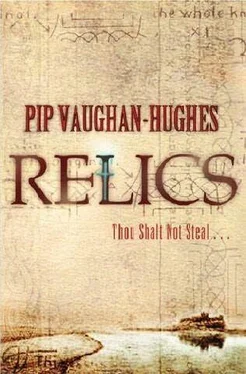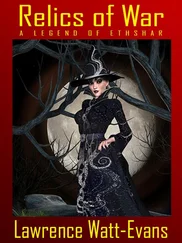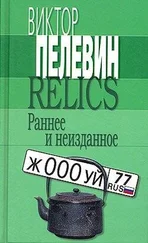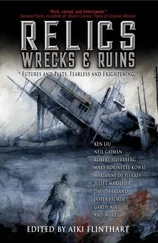Pip Vaughan-Hughes - Relics
Здесь есть возможность читать онлайн «Pip Vaughan-Hughes - Relics» весь текст электронной книги совершенно бесплатно (целиком полную версию без сокращений). В некоторых случаях можно слушать аудио, скачать через торрент в формате fb2 и присутствует краткое содержание. Жанр: Исторический детектив, на английском языке. Описание произведения, (предисловие) а так же отзывы посетителей доступны на портале библиотеки ЛибКат.
- Название:Relics
- Автор:
- Жанр:
- Год:неизвестен
- ISBN:нет данных
- Рейтинг книги:4 / 5. Голосов: 1
-
Избранное:Добавить в избранное
- Отзывы:
-
Ваша оценка:
- 80
- 1
- 2
- 3
- 4
- 5
Relics: краткое содержание, описание и аннотация
Предлагаем к чтению аннотацию, описание, краткое содержание или предисловие (зависит от того, что написал сам автор книги «Relics»). Если вы не нашли необходимую информацию о книге — напишите в комментариях, мы постараемся отыскать её.
Relics — читать онлайн бесплатно полную книгу (весь текст) целиком
Ниже представлен текст книги, разбитый по страницам. Система сохранения места последней прочитанной страницы, позволяет с удобством читать онлайн бесплатно книгу «Relics», без необходимости каждый раз заново искать на чём Вы остановились. Поставьте закладку, и сможете в любой момент перейти на страницу, на которой закончили чтение.
Интервал:
Закладка:
While you were napping in your dinner, Petroc, the village headman came over to pay his respects to the Lady Eleni. Amid the obsequies he let drop that he had heard of another Frankish lord – how Koskino is blessed! – who had arrived a day or so earlier on the other side of the island and taken lodgings in the big town. We asked politely if this lord had a name. He did not know, but told us that the town children had christened him "Polyphemus". Now we looked at each other then, you can be sure. And why, we enquired, was that? Well, he was rather frightening, apparently, and – Petroc, you have an educated mind. Who was Polyphemus?'
I paused to think. I had read bits and pieces of the ancient writers, and Adric had been particularly fond of an ancient copy of Homer, a ragged and neglected old thing that only he and I ever opened. I had dipped here and there – the walls of Troy, Achilles' unseemly friendship with another fellow, various murders, and a long voyage. Odysseus. All sorts of adventures with whirlpools, witches, nymphs and a giant called Polyphemus, who lived in a cave, and… 'This man has only one eye?'
They nodded gravely. The bright morning had become grim in the cabin. I felt cold drops of sweat start under my tunic, but then the furnace of my anger began to glow. Well then.'
'Indeed,' said Gilles. 'It means he has a ship, and a fast one, to beat us here – he must have killed horses beneath him to cross Italy. He is confident now. He will show his hand.'
'Let him,' I said. Gilles and the Captain cocked their heads towards me in surprise.
Anna was sharpening her sword. Dimitri turned the wheel, but she would let no one else touch the blade. It was small and double-edged and tapered slowly to a wickedly sharp point. I had not seen it since that night in Bordeaux, when she had spitted the mercenary Benno with it.
'She is Circassian, a kama,' Anna said. A gift from my fencing master. I can use a long-sword, but I've never found one light enough for me. The Circassians still make their swords in the Roman style, and so I feel close to my ancestors when I wear her.'
Satisfied at last with the edge, she rubbed the grooved blade to life with a greasy rag, and the wavy lines of damask seemed to ripple like clear water. No perfectionist, I handed my own sword to Dimitri.
'Let me,' said Anna, and waited until the armourer handed it over. 'This is a good blade.'
I nodded. Gilles had picked it out for me from one of the mysterious corners of the hold one morning after we had. left Bordeaux. The blade was a little shorter than usual, wide at the base and pointed, not blunt. 'This is a new style,' Gilles had told me. 'See: you can stab and thrust, as well as slash. You are used to a knife, so this will suit you better than one of those crude hackers. I have one, so does the Captain. May it serve you well.' I liked how it felt in my hand. The hilt was an upturned half-moon, the grip was a tight braid of some woven metal, and best of all, the pommel was a smooth, eight-sided ball of steel, pointed like a filbert and inlaid on each facet with a little flower of silver. I had liked wearing it last night. It was pretty, but it had a purpose. It had helped me kill one man and more than likely I would soon be needing its services again. 'It is French,' I shrugged. 'Apparently it's the latest thing.' 'And apparently', she mocked, eyebrows cocked, 'you can use it.'
In fact I could, after a fashion. By now, I had long been part of the fencing games that Dimitri insisted upon every fine day. Some of the men were skilled indeed, others just very vicious. There was much to learn from all of them. Pavlos, who with his Varangian schooling could probably have cut the whiskers from a flying moth, had shown me many subtleties of wrist and posture. From Horst, on the other hand, I had learned how to smash the pommel into the enemy's face while mashing his stones with your knee. And I already knew how it felt to kill a man. In that baleful way at least, I was the equal of any man aboard, and even of the woman who now stroked sparks from the edge of my sword. We'll see,' I answered.
In a half-hour we would go ashore and make our procession to the shrine of the saint. It would be our scouting trip. Then later we would go back and do what we had come to do. Now we were dressed in our finest. Anna's hair was caged in its golden net, and she wore the gown I had seen first in Bordeaux. And I was draped in the finest Venetian silks. I hoped I did them justice: Dimitri had been busy with his needle and thread, and whoever they had once belonged to, they now fitted me as if cut by the Emperor's own tailor. I retrieved my sword, now sharp enough to shave with. It hissed into its sheath. Anna's own blade was well hidden: why would a lady go armed to a shrine? Why would any of us? I felt a little hollow inside, and not with fear.
Anna had been watching me. You have moped around since I woke up,' she told me. Why?' I muttered something about my guilty conscience.
'This is our work now,' she shot back. 'So do you believe in this Saint Tula all of a sudden?' 'No, but…'
'But habits die hard, is that it? Well, let them die. These people… they are my people, Petroc! These people are full of life: they brim with it. And yet you worry about stealing something dead from them. I will tell you something. When they told me how the Franks sacked Byzantium and stole the holy relics, I was happy. I have always hated priests and their spells and mumbles, and their old bones most of all. They keep us in the shadows. We are not doing an evil thing. We are delivering these folk from being in thrall to an old corpse.'
Well, if everything goes properly, they won't actually know the old corpse is gone, so I don't think that is true.'
Anna waved her hand as she always did, swatting away annoying words. 'But… but we know, and their precious Saint Tula will actually be gone, and that's all that counts.' There was no point in arguing. She was an armed princess, and as such was under no obligation to make sense. And at least she was talking to me.
As the honoured guests, we rode up to Tula's shrine on two knobbly, fly-bitten donkeys, the finest the village could supply. The saddles were wooden and fitted on the beasts like little roofs. I had to straddle the ridge, which was only slightly less than sharp, as if the maker, proudly introducing a note of luxury, had given it the once-over with his bluntest file. The path was long, twisting and steep, and before we had even left the village I felt like Saint Simon the Zealot, sawed in two up the middle. Christ alone knew how Anna managed to keep such composure perched side-saddle. But the donkeys were an honour it would have been suspicious of us to refuse, so we toiled up and up, led by the jovial priest with his cross-crowned staff and followed by ten of the most presentable of our crew and what seemed to be the entire village of Limonohori done up in their finest.
The day was beautiful, and infernally hot. The track ran between high stone walls that hid orchards and gardens, and many vineyards. Vines heavy with unripe grapes hung over the grey stone. We stumbled over rough cobbles and up wide steps cut – who knew how long ago? – into the mountain itself. The insect noise blazed. Often we were bombarded by grasshoppers, bigger than any I had ever seen, whose dull brown armour hid wings of vivid red or blue. Flies had laid siege to our donkeys' ears, and soon turned their attentions to us, nipping at our sweat-beaded flesh. I had drained my water flask too early, and watching Anna sip sparingly at hers piled on the torture. More than once it occurred to me that by the time we made it to the shrine I would be well and truly martyred myself. Perhaps they would accept my donkey-mangled corpse as a substitute for Tula.
The track was steeper now, and the donkeys' hooves rang on stone. For the first time that morning I was glad I was not on foot. Up ahead, the priest looked on the point of apoplexy as he floundered in his long black robe. And then the walls on either side opened out and we were in a wide open space, circled by more walls. In the centre, surrounded by a grove of cypresses whose narrow trunks were contorted with age, was a tiny domed chapel hardly bigger than the cabin on the Cormaran. So old that it seemed to have sunk into the ground, it had been freshly whitewashed so that, like most buildings on Koskino, it hurt to look at in the bright sunshine. Two steps led down to the blue-painted door. The priest signalled for us to wait, staggered down the steps and opened the door. I noticed it was not locked. He disappeared into darkness. Around us the villagers were spreading rugs on the hard earth and laying out food and drink. How had they managed to lug all that up here, I wondered as I swung my bruised carcass down from the diabolical saddle. It was agony bringing my legs together and I prayed my stones had not been pounded flat, as I could no longer feel them.
Читать дальшеИнтервал:
Закладка:
Похожие книги на «Relics»
Представляем Вашему вниманию похожие книги на «Relics» списком для выбора. Мы отобрали схожую по названию и смыслу литературу в надежде предоставить читателям больше вариантов отыскать новые, интересные, ещё непрочитанные произведения.
Обсуждение, отзывы о книге «Relics» и просто собственные мнения читателей. Оставьте ваши комментарии, напишите, что Вы думаете о произведении, его смысле или главных героях. Укажите что конкретно понравилось, а что нет, и почему Вы так считаете.












